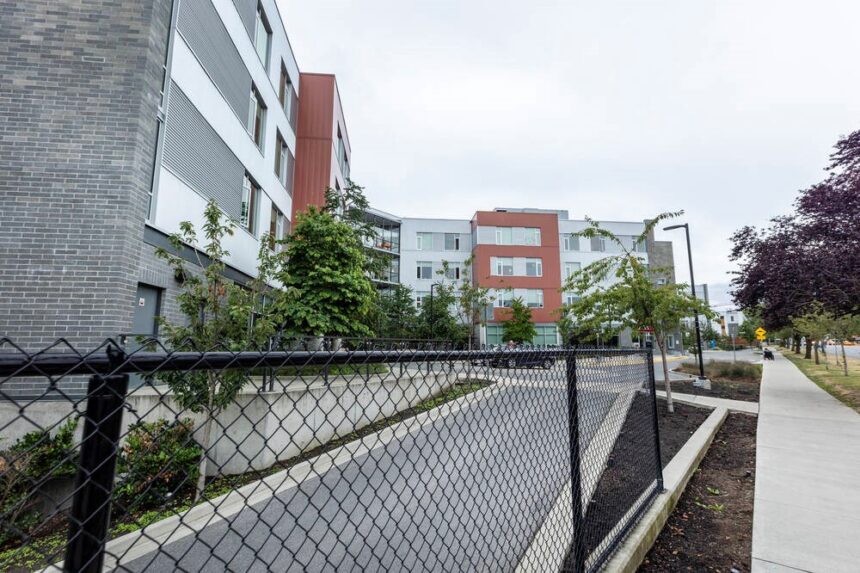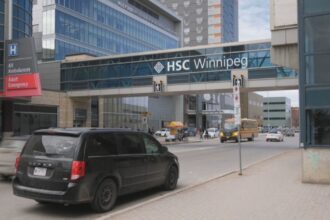In the shadow of Vancouver Island’s picturesque landscapes lies a healthcare crisis that continues to challenge local authorities. Island Health officials acknowledged this week that despite ongoing efforts, no viable alternative has emerged to replace the Summit long-term residential facility for individuals struggling with complex mental health and addiction issues.
The Summit, which closed its doors in 2020 amid the turbulence of the COVID-19 pandemic, left a critical gap in services that remains unfilled nearly four years later. “We recognize the urgent need for comprehensive residential treatment options on Vancouver Island,” said Dr. Richard Stanwick, Island Health’s Chief Medical Health Officer during Tuesday’s board meeting. “The challenge has been finding a suitable service model that addresses the complexity of concurrent disorders while remaining financially sustainable.”
The 44-bed facility previously offered crucial support for Vancouver Island residents with severe addiction challenges complicated by mental health conditions. According to internal data from Island Health, approximately 8,500 individuals on Vancouver Island are currently seeking treatment for complex mental health and substance use disorders, with available services meeting less than 40% of the demand.
“What we’re witnessing is a domino effect across our healthcare system,” explained Sheila Malcolmson, B.C.’s Minister of Mental Health and Addictions, in a statement to CO24 News. “Emergency departments become de facto mental health centers, police become first responders to health crises, and vulnerable individuals cycle through systems that aren’t designed to address their underlying needs.”
The financial implications are equally concerning. Economic analysis from the Canadian Centre on Substance Use and Addiction indicates that every dollar invested in addiction treatment yields approximately $7 in reduced healthcare, criminal justice, and social welfare costs. For Vancouver Island specifically, the absence of comprehensive residential treatment options represents approximately $26 million in indirect annual costs to local communities.
Community advocates have grown increasingly vocal about the service gap. “We’re essentially asking people with life-threatening conditions to wait indefinitely for treatment that doesn’t exist,” said Elizabeth Howard, director of the Island Coalition for Substance Use Recovery. “It would be unthinkable to tell someone with cancer that no treatment facilities exist in their region, yet this is precisely what’s happening with addiction and mental health services.”
Island Health officials point to several obstacles hampering the development of a Summit replacement, including staffing shortages affecting healthcare nationwide, challenges in securing appropriate physical facilities, and the evolving nature of substance use patterns across Vancouver Island communities. The toxic drug supply crisis has further complicated treatment approaches, requiring more sophisticated medical interventions than previously needed.
“We’re not standing still,” emphasized Kathy MacNeil, Island Health CEO. “While working toward a comprehensive residential solution, we’ve expanded outpatient services, enhanced crisis response teams, and developed stronger community partnerships.” These interim measures, while valuable, fall short of addressing the intensive, long-term support previously provided by the Summit facility.
Political analysis suggests the situation reflects broader challenges in Canadian healthcare, where mental health and addiction services historically receive disproportionately less funding despite affecting significant portions of the population. The province has committed to exploring innovative models that could potentially replace traditional residential facilities with networks of connected services.
As Vancouver Island communities continue grappling with these challenges, the human cost becomes increasingly apparent. Emergency departments report steady increases in mental health and addiction-related visits, while community organizations describe overwhelming demand for support services that exceed their capacity.
As we consider the future of mental health and addiction services on Vancouver Island, one question remains paramount: Can our healthcare system evolve quickly enough to address this crisis, or will vulnerable individuals continue falling through widening cracks in a system that wasn’t designed for their complex needs?










